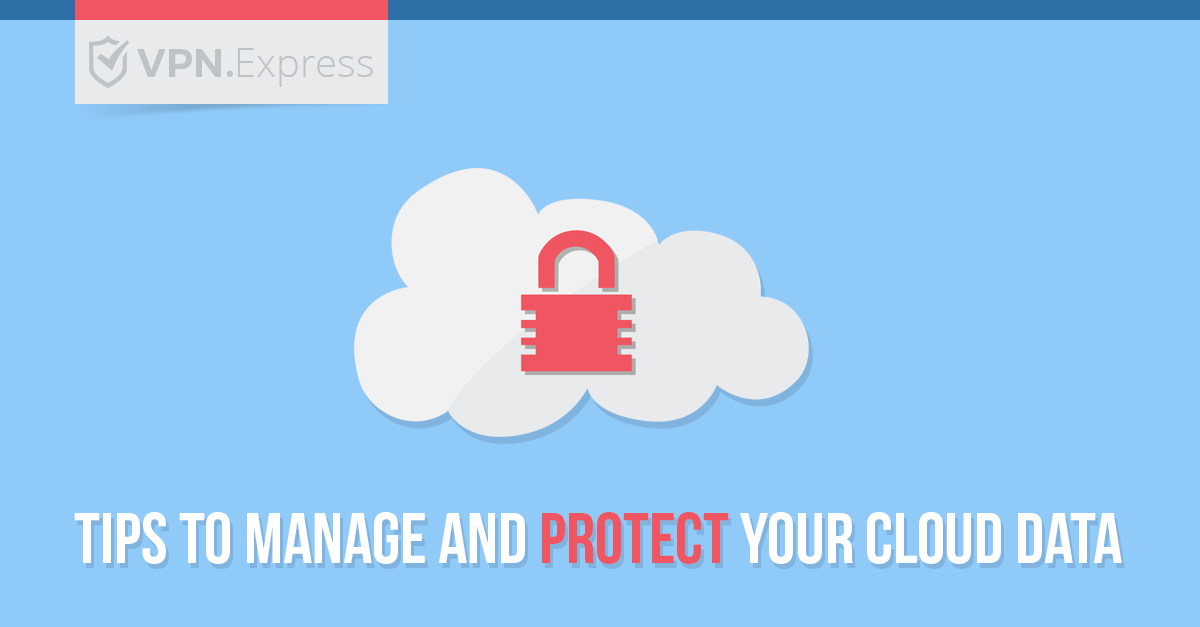Tips to manage and protect your Cloud data
Gone are the days when you had to bring your thumb drives or portable hard disks along wherever you go because cloud-based storage services are here to stay.
Tips to manage and protect your Cloud data
In fact, it’s quite difficult to track down the very first time the word “cloud” was used in computing, but these days, It is literally everywhere. Whether you actually have a cloud account or not, it’s likely that you’ve been using cloud storage indirectly without even knowing it. For instance, the majority of social media, banks and email companies use the cloud when it comes to storing your emails, files, photographs, and other data.
More and more people choose to use various popular cloud solutions, from Google Drive to Dropbox, to store their data online and provide them with the ease of access at any place and time, as long as they maintain the internet connection.
The convenience of storing data on a cloud and being able to access it across multiple devices seems really tempting, but it certainly raises a couple of serious security concerns. In fact, Apple has recently suffered from a major hacking scare related to leaked iCloud credentials. Last year, Dropbox reset many of its user’s passwords due to a data breach that was occurred back in 2012. Even celebrities, such as Jennifer Lawrence and Kirsten Dunst, became victims of a huge Hollywood scandal when a collection of almost 500 intimate pictures were hacked from their personal cloud storage accounts and posted all over the internet a few years ago. If you ever think that this just happens to celebrities, think again. Even common folks like you and me are being exploited by malicious hackers.
So how can you be sure the information you store on the cloud is safe? The short answer is you can’t. However, you can take some protective measures. Here are a couple of practical tips to keep your cloud data as safe and secure as possible.
-
Read the user agreement to find out how your cloud service storage works:
Whether you’re not sure what cloud storage suits you the best or you have any questions as for how that or another cloud service works, always read the user agreement of the service you are planning to sign up for. We all find it hard and boring to do so but it actually contains almost all the information you need to know.
-
Create a strong password:
A strong password is the first line of defense against any hacking attempts. Unfortunately, passwords are usually the weakest links. In fact, 76% of cyber-attacks on corporate networks are due to weak passwords.
Avoid using your real name, last name, company name, and the names of your children, spouse, pets, or any other easy to guess passwords. You can simply use a password based on phrases that mean something to you. However, if you find juggling multiple passphrases difficult, a password management application such as LastPass, 1Password, and Password Safe are your best choice.
-
Activate Two-Factor Authentication:
Adding an extra layer of security is always a good decision. On top of your password, you can also activate Two-factor authorization (AKA 2FA). Without 2FA, hackers only need your username and password to access your data.
Many online account services, such as Apple’s iCloud and Google Drive, offer 2FA by sending you a code via text or phone call. So in order to access an account protected with 2FA, you need two different elements: something you know (password) and something you get (a code).
-
Backup your data offline:
No matter how reliable the cloud might seem, it’s always a good idea to back up your data somewhere else. Offline backup of your media is not only important when your phone is lost, stolen, or damaged, but also when someone hacks into your cloud account and deletes your data.
Most smartphones offer a way to back up your media that is not cloud-based and that can be stored in your personal computer. For example, Apple devices can leverage iTunes to create backups, and Samsung devices can backup through Kies software.
-
Encrypt your data before putting on the cloud:
Although the biggest names in cloud storage, such as Dropbox and iCloud, may offer the most convenience, they are far from being the most secure, Which is why it is crucial to use a third-party tool to perform the encryption of your entire data.
To guarantee full security and protection, use a VPN service such VPN.Express to encrypt all your data before storing it on the cloud. All you need to do is to download a VPN service which will allow you to apply passwords and generate secret key sequences to your files before you actually upload them to the cloud.
This method protects your data even from the service providers themselves as it makes it impossible for them to access your credentials.
Be safe. Be free.

 Follow
Follow